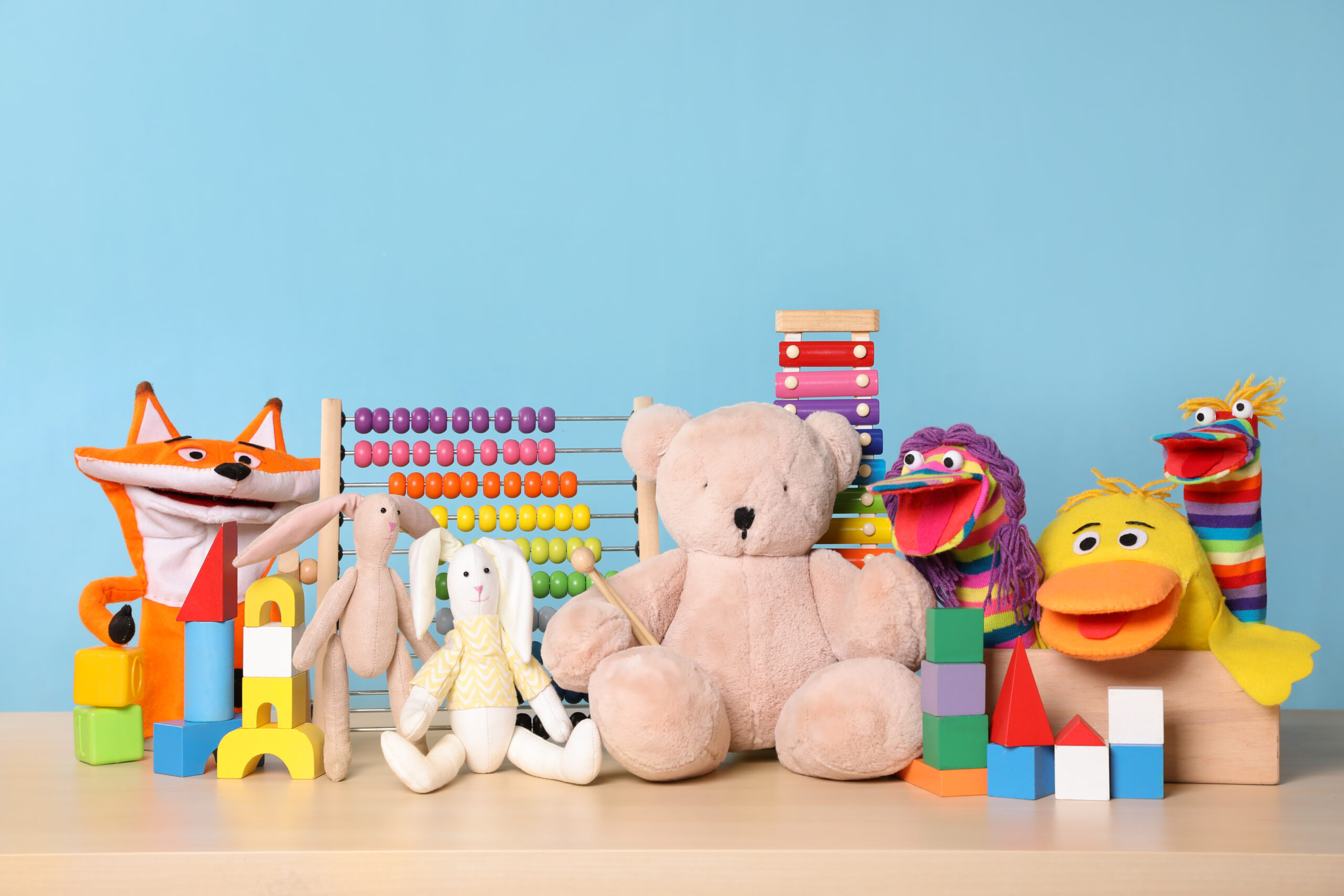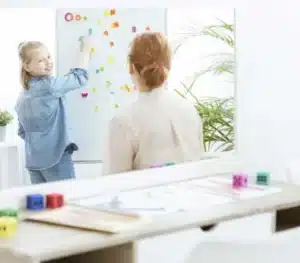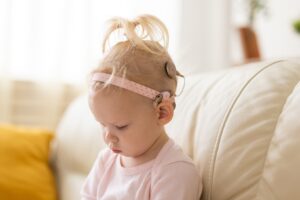By Christine Hemelians, MSOT, OTR/L
It is crucial to pick out toys that are multi-purpose for children to develop and grow. This is especially important in the digital age. From a developmental standpoint, there is a large body of research indicating the importance of toys fostering and enhancing development across all domains (cognitive, language, social-emotional, and physical). In this new digital era, the core elements of traditional toys have been adapted to electronic versions (i.e., laptops, apps, tablets, phones, etc.). The advancement of virtual-based toys has created a misconception for many caregivers. The idea is that expensive, electronic, and tablet-based toys are essential for their child’s healthy development. In fact, the opposite is true. It’s important for children to interact with three-dimensional, physical toys which target many different skills such as: cognitive, language based, imaginative play, fine motor and gross motor skills, and social emotional skills. Electronic toys, however, fancy they may be, should never replace the experience of reading a book, enjoying and listening to a story, playing and interacting with real objects, as well as creating with hands (i.e., finger painting, coloring, etc.). Let’s look at why toys are important and crucial to a child’s development. Keep in mind that the toys listed in each category can target several skills; therefore, these toys are considered multi-faceted.
1) It enhances motor skills
Toys that encourage throwing, stacking, inserting, kicking, and pushing build upon gross and fine motor skills. This is turn can improve and enhance eye-hand coordination, control, and strength. It is important to a child’s development to be able to physically interact with and manipulate three-dimensional objects/ toys.
| Toddlers | Preschoolers |
|---|---|
|
|
2) It enhances cognitive skills
Toys promote problem-solving skills, attention span, memory, and ability to focus.
| Toddlers | Preschoolers |
|---|---|
|
|
3) It promotes social emotional skills
When participating in play with a caregiver or peer, toys can provide lessons with regards to sharing and cooperation. Open-ended toys allow children the opportunity to experiment with role-playing and pretend play.
| Toddlers | Preschoolers |
|---|---|
|
|
4) 4. It enhances language skills
Toys support a child’s language development and enhances their vocabulary.
| Toddlers | Preschoolers |
|---|---|
|
|
Choosing the right toy from the many possibilities can be overwhelming. As with children who are typically developing, children with special needs maximally benefit from play with toys where caregiver interaction is encouraged. Here are some tips/ suggestions parents can utilize while selecting a toy.
- Is the toy safe?
- Is the toy/ product developmentally age appropriate? (As a parent you should take into account your child’s developmental age level rather than their chronological age level. For example, if the child is 2 years old and functioning cognitively at a 10-month old level, then it’s appropriate to choose a toy similar to the child’s cognitive age)
- Does the toy promote versatility?
- Is the product durable?
- Does the toy promote creativity?
- Does the toy serve an educational purpose?
- Does the toy help nurture childhood and allow the child to express emotions and practice positive social interaction?
According to the American Academy of Pediatrics, several scientific studies suggest that the most educational toys is one that fosters interactions between caregivers and children. It is suggested to seek out toys that encourage the child to be both mentally and physically active.




